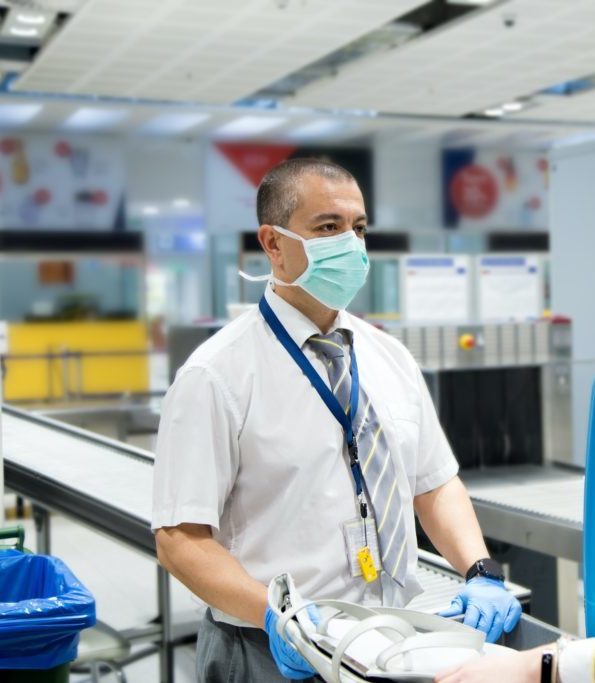HOW TO CONDUCT A SUCCESSFUL TRAVEL RFP
the journey to a better travel management partner
Starting a full RFP (Request for Proposal) / tender process can be an overwhelming prospect. Various elements such as which suppliers to invite, what questions to ask and how to evaluate their responses present their own challenges.
Gray Dawes is here to help you better your experience by running through each element of the RFP process to enable you to partner with a Travel Management Company (TMC) that is ideal for your business.
Where to begin
Business travel touches many people across a business. As such we would recommend meeting your internal subject matter experts to understand how the programme affects them and how the TMC can bring more value to their teams:
Key bookers
Key travellers
A member of HR
A member of the Finance team
A member of the IT team
Their experience and knowledge of departmental processes (e.g. invoicing and payment for Finance) will be key when building question sets that bring palpable responses.
Who to invite
Creating your own shortlist can be done easily if you know where to look and the best places to start would be:
The profiles of the UK’s top 50 TMC’s: https://www.businesstravelnewseurope.com/Management/UK-s-Leading-50-TMCs-revealed
Members of the British Travel Association (BTA): https://www.thebta.org.uk/members-directory
Institute of Travel Management: https://www.itm.org.uk/
If you hold a good relationship with a TMC and have reviewed their standing in the UK market, it would be worth including them on your shortlist.
What to ask
Within an RFP, structure is everything. We would suggest building a list of chapters of the key areas for your travel management programme and working from there. For example:
- Executive Summary
- Online Booking Tool – Content available, functionality, mobile app compatible
- Service Delivery Team – Size of team, location, experience, SLAs
- Account Management – How will they drive performance, experience
- Reporting – Dashboard availability, live reporting capability, frequency of reports
- Implementation – Time frames, key personnel
- Added Value – Cost savings, additional services, tangible and intangible benefits
- Commercials – Compliant and premium models
Take the information gained from your internal review and reach out to your key bookers, their insight into the day to day operations will enable you to gather a list of salient questions to really tailor the RFP to your business.
Setting timelines
As part of your early engagement with your shortlist of suppliers you should inform them when the RFP will be released, giving them the opportunity to research your business, plan the necessary internal meeting to discuss the bid and build it within their prospect pipeline.
Within your RFP documents you should dedicate a section that details all of the key dates within a table so that it is clear and all in one place for the reader. For example:
| Activity | Date |
| Release of RFP documents to supplier | 8th April |
| Clarification questions from supplier | 15th April |
| Responses to clarification questions | 22nd April |
| Submission of supplier responses | 6th May |
| Supplier shortlisted | 11th May |
| Supplier presentations | 18th May |
| Successful supplier announced | 1st June |
| Implementation | 6th July |
| Go Live | 3rd August |
Evaluation matrix and weightings
Comparing suppliers is a challenging exercise, there will be numerous responses written and presented in different ways.
One method to take the strain from your evaluation is to create a weightings matrix which can be shared with the suppliers within the RFP document. A weightings matrix simply breaks down what is important to your business and the areas to focus on for the supplier. From a client side it will present a ‘scoring card’ for the evaluation process.
Scoring:
0-5%: Supplier meets some of the requested criteria
6-14%: Supplier compliant
15-20%: Supplier displays excellent understanding of our requirements
Section | Weighting |
Executive Summary | 30% |
Cultural alignment | 10% |
Service | 10% |
Technology | 10% |
Content | 10% |
Commercials | 20% |
Added Value | 10% |
Presentation stage
Once a bid has been submitted and evaluated you are ready to conduct the presentation stage. This can be carried out at your office, the supplier’s proposed operations centre or in this current climate over WebEx / Zoom.
It would be beneficial to share an agenda of topics that you want to be covered – this provides a ‘yard stick’ for you to evaluate the suppliers. If there is no agenda, your ability to score the presentations will become near impossible.
And the winner is...
Now time to share some good news! Once you have informed the TMC they have been successful they will take the reigns for you and begin the transition and implementation process until the go live date.
And they booked travel happily ever after….
Thank you for reading, any questions?
We hope that this high level run through of the RFP process has been helpful. Should you have any questions or require any further insight please contact our Bid Manager, Jamie Mitton (Jamie.Mitton@gdg.travel) who will happily chat through all things RFP related.
We will be sharing a white paper on this topic very soon; delving deeper into what makes a strong RFP from both the client and suppliers perspective.
Keep an eye on our Working From Home blog for that piece and further interesting articles to get you through the following weeks and months of working from home.

Traveller Toolkit
To help you navigate the changes of business travel, we’ve created the brand-new Traveller Toolkit. This invaluable online resource is packed full of easy-to-use guides and checklists for every stage of every journey. We detail exactly what you need to know and do before, during and after your trip.
You’ll also find innovative and interactive virtual trips, which walk you through each step of being at the airport, on the train and in the hotel. You can even check the travel restrictions and health status of your destination with our comprehensive COVID-19 Country Tracker, updated five times daily to ensure you have the very latest information to help keep you and your travellers safe.
Travel is changing. But with common sense and a good TMC behind you, travellers should have the confidence to once again take to the skies. It’ll soon be business as (un)usual.
LATEST FROM THE BLOG
Explore our most recent articles, covering the latest topics from the best in the business…
In The Know – August 2021
We identify the most pertinent news stories from the corporate travel press and offer our analysis of what this means for businesses. Think of it as your travel cheat-sheet for staying in the know!
In The Know – July 2021
The most pertinent news stories from the business travel press and our analysis of what this means for businesses. Think of it as your travel cheat-sheet for staying in the know! Check out four news stories which grabbed our attention this month.
In The Know – June 2021
We regularly identify the most pertinent news stories from the business travel press and offer our analysis of what this means for businesses. Here are five articles recent articles that could affect your travel programme.

